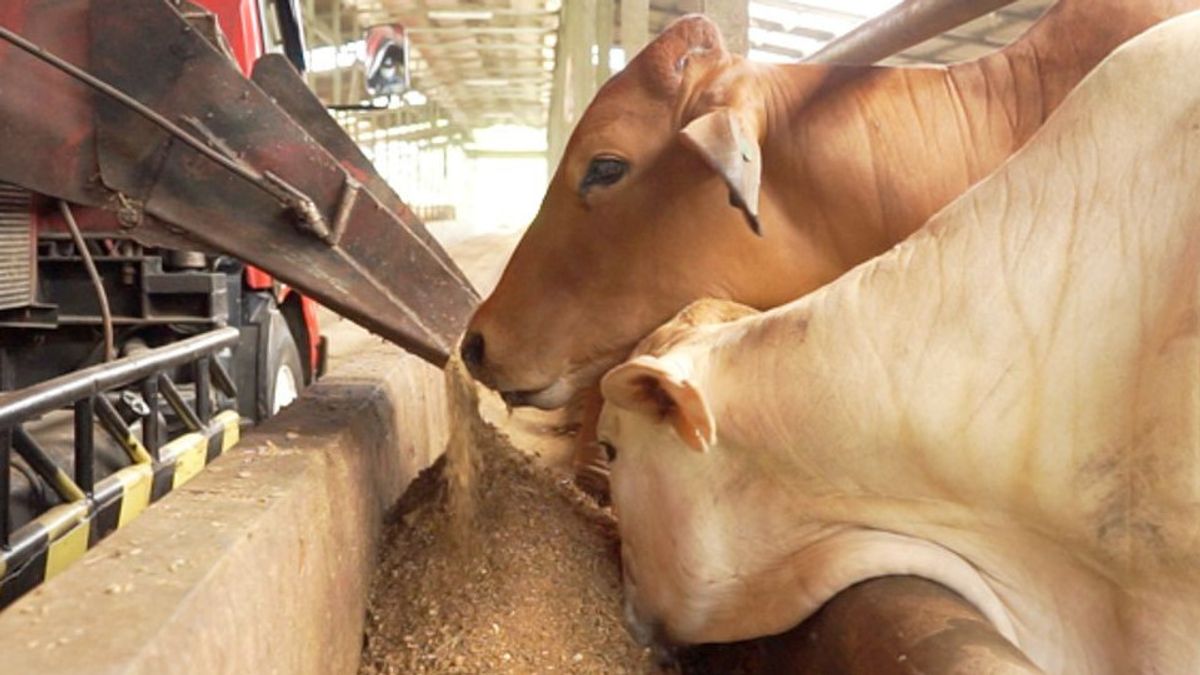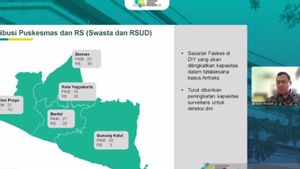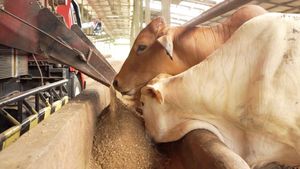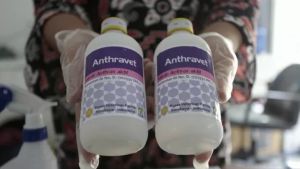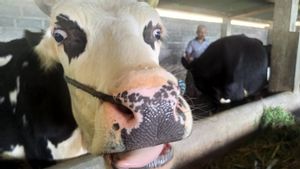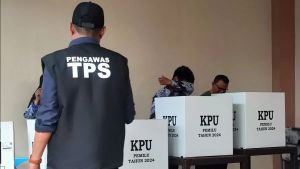YOGYAKARTA - The Indonesian Veterinary Association (PDHI) of the Special Region of Yogyakarta (DIY) stated that the application of biosecurity in cattle and goats belonging to residents in Gunungkidul Regency needs to be strengthened to prevent cases of attractors in the region from recurring.
PDHI DIY chairman drh. Aniq Syihabuddi said the application of biosecurity included fixing the cleanliness and standards of the residents' livestock cages, some of which were still listed on the ground.
"The standard of homes among the community we know for ourselves the term biosecurity is not supportive," said Aniq, quoted by ANTARA, Friday, July 7.
Aniq said ground-story livestock cages are at risk of becoming a means of transmittingANTRAC because the Bacillas Anthracis bacterial spora is able to survive decades on the ground.
Gunungkidul as an area that once had a history of attracting cases in 2019, according to him, could anticipate the same thing over and over by implementing a concrete or cement-based cage standard accompanied by good sanitation.
"If the wet groundwork is difficult to clean, it's also not hygienic. With cement, it's relatively easier to clean," he said.
In addition to being easy to clean and not moist, according to Aniq, disinfection liquid sprayed in cement-story cages can be maximized and evenly distributed.
"The disinfection should be evenly distributed, say, to kill bacteria in an environment that may still live for decades," he said.
However, he admits that strengthening the biosecurity of livestock cages is not a single solution to prevent anti-extraction because apart from forming a sporamous, the bacteria can be carried away by the air.
This needs to be accompanied by a series of other actions so that similar cases do not reappear, such as vaccination, injection of antibiotics, tightening supervision of livestock traffic, to a thorough epidemiological investigation into animals when cases arise.
In addition, said Aniq, the habit of some residents of Gunungkidul to consume dead cows because antrax must also be eliminated.
Based on his history, the attracting cases in DIY once appeared in Pakem, Sleman in 2003, then in Kulon Progo in 2016, in Pleret, Bantul in 2017, and Karangmojo, Gunungkidul in 2019.
He suspects that the re-emergence of the anti-extraction case in Gunungkidul has even resulted in the death of a resident in June 2023 due to the lack of habit of beatings or slaughtering and consuming dead cows.
"If in other areas, maybe if (the cow) is dead, it will be buried so that there are no cases in humans. However, in Gunungkidul once a case appears, the old case is because of the people's habits," he said.
VOIR éGALEMENT:
Head of the DIY Agriculture and Food Security Service (DPKP) Sugeng Purwanto ensured that the attractor cases that appeared in Jati Hamlet, Semanu District, Gunungkidul Regency did not spread to other areas in this province.
In addition to temporarily closing the traffic of livestock in and out of Jati Hamlet, DPKP DIY also intensified vaccinations and ensured that no more beef or goats were circulating in the community or out of the hamlet.
"For now (the anti-extraction case) is only in Jati Hamlet, Semanu, Gunungkidul. So far, there have been no reports from other locations," said Sugeng.
The English, Chinese, Japanese, Arabic, and French versions are automatically generated by the AI. So there may still be inaccuracies in translating, please always see Indonesian as our main language. (system supported by DigitalSiber.id)
